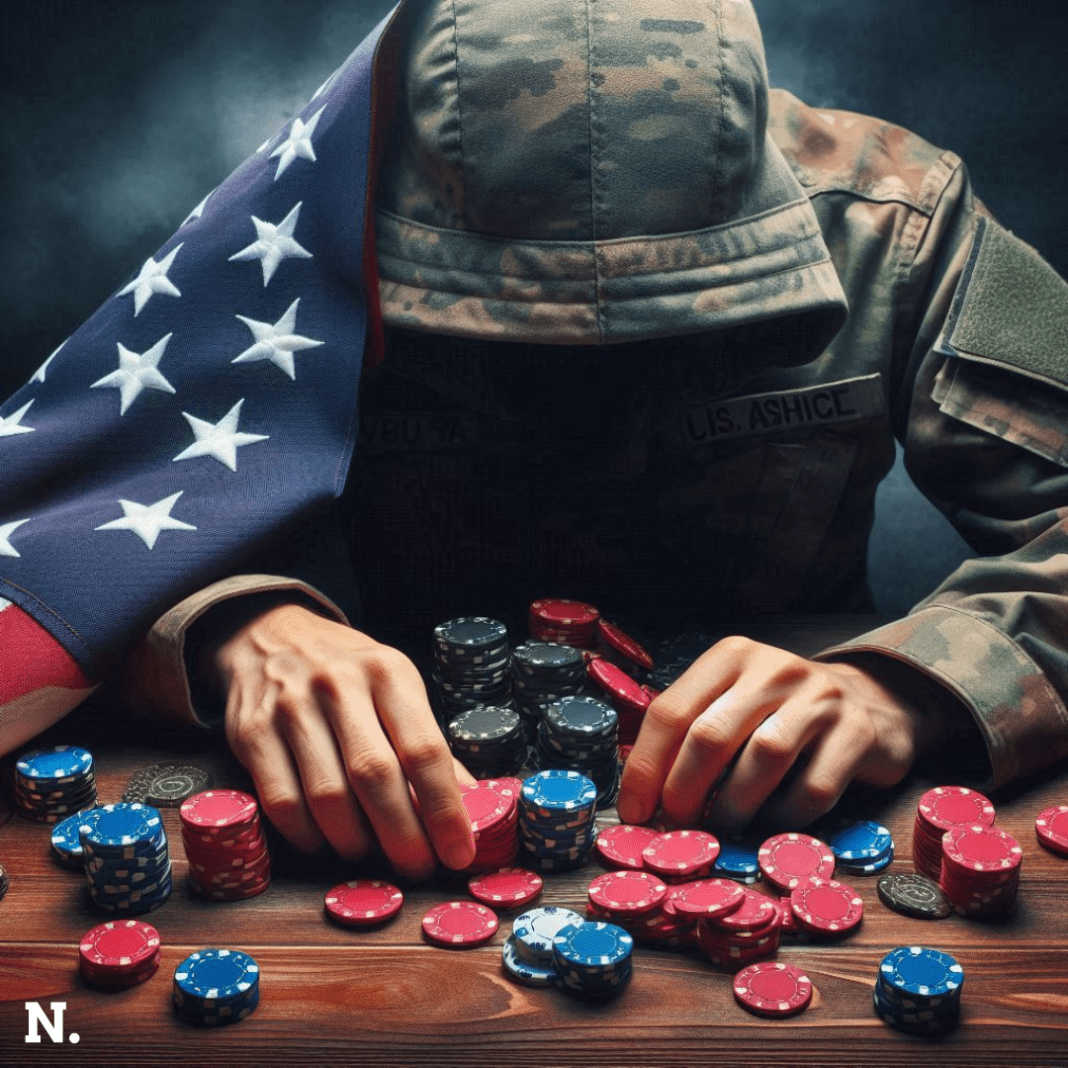In the wake of 9/11, then-Army Staff Sergeant Dave Yeager sat at a slot machine on a U.S. military base in South Korea. That moment marked the beginning of a gambling problem that would cost him dearly. “All of the worry, tension, and other emotions that I was feeling at the time vanished, Yeager told CNBC.
What started as a way to relax soon grew into an obsession. The slot machine win was a turning point for Yeager. His gambling habit spiraled out of control, costing him his career, financial security, and family. “It went from ‘I was having fun doing this,’ to ‘I had to do this.’ Yeager described it as an obsession.
Personal and Professional Consequences of Gambling
In his book, “Fall In: A Veteran with a Gambling Addiction,” Yeager wrote about his struggles. He borrowed from subordinates, stole from petty cash, and left his family in financial ruin. He highlighted how such vulnerability in servicemembers could impact individual readiness and national security.
Despite confessing his addiction to his commanders and counselors, Yeager found little support. “The chaplain advised me to attend bingo night on Sunday. That would give me something to do, Yeager remembered. And I said, ‘I think you’re missing the point here.’
Gambling on Military Bases
The Department of Defense operated over 3,100 slot machines on military bases in foreign countries as of 2017, generating more than $100 million annually. These machines, seen as morale boosters, allow servicemembers as young as 18 to gamble. In contrast, slot machines are prohibited on domestic bases, but casinos are often nearby.
The Expansion of Sports Betting
The expansion of sports betting after a 2018 Supreme Court decision has increased gambling opportunities. Heather Chapman, a clinical psychologist with the Department of Veterans Affairs (VA), noted a rise in people seeking help for gambling problems soon after the expansion.
Rising Diagnoses and Treatment
Diagnoses of pathological gambling disorders among service members and veterans have increased dramatically. More veterans were diagnosed in the first half of 2024 than in all of 2022. Twenty percent of these referrals come from women. “With increased accessibility and availability, we tend to see a rise in unhealthy engagement,” said Dominick DePhilippis, the VA’s deputy national mental health director for substance addiction disorders.
Barriers to Self-Reporting
Servicemembers may hesitate to self-report gambling problems due to fears of losing their security clearance or facing stigma. Studies show that the prevalence of problem gambling among veterans can be as high as 10.7% in some regions. To address this, the VA operates two residential treatment facilities for gambling addiction and partners with civilian facilities nationwide. “We are sort of the mecca of gambling treatment,” Chapman said.
Lack of Department of Defense Action
The Department of Defense has not increased resources to address problem of betting, despite the rising issue. A 2018 Health Related Behavior survey showed gambling rates among servicemembers at 1.6% to 1.7%, similar to the civilian population. However, the military is conducting a new survey with results expected in the fall. Service members are now screened for gambling disorders annually, and those seeking treatment after screening will not be penalised.
Inconsistent Policies on Gambling Education
Policies on gambling education vary by base. Brianne Doura-Schawohl, a lobbyist for responsible gaming, advocates for consistent betting education and treatment policies across the military. “These policy guides should be revised to address this addiction in the same way that they do for alcohol. We need to do more to prevent and treat this condition, she stated.
Legislative Efforts to Address the Issue
Some lawmakers have attempted to address military gambling issues. Senators Elizabeth Warren and Steve Daines introduced the Gambling Addiction Prevention Act in 2018, which sought to track and treat gambling disorders among servicemembers. It did not gain traction. More recently, Representative Paul Tonko proposed an amendment to curb all gambling on military bases, but it was not included in the final legislation.
Targeted Promotions and Responsible Gaming
Around patriotic holidays, casinos often target promotions at service members and veterans. For instance, some casinos offer military-themed membership cards with rewards and promotions. MGM Resorts, however, only offers non-gambling promotions to the military and veterans and funds clinical research on gamble disorders among the military community.
BetMGM, a joint venture with Entain, does not target military members or veterans with promotions. This approach reflects a growing awareness of the need to support those who serve by addressing and preventing this addiction.





